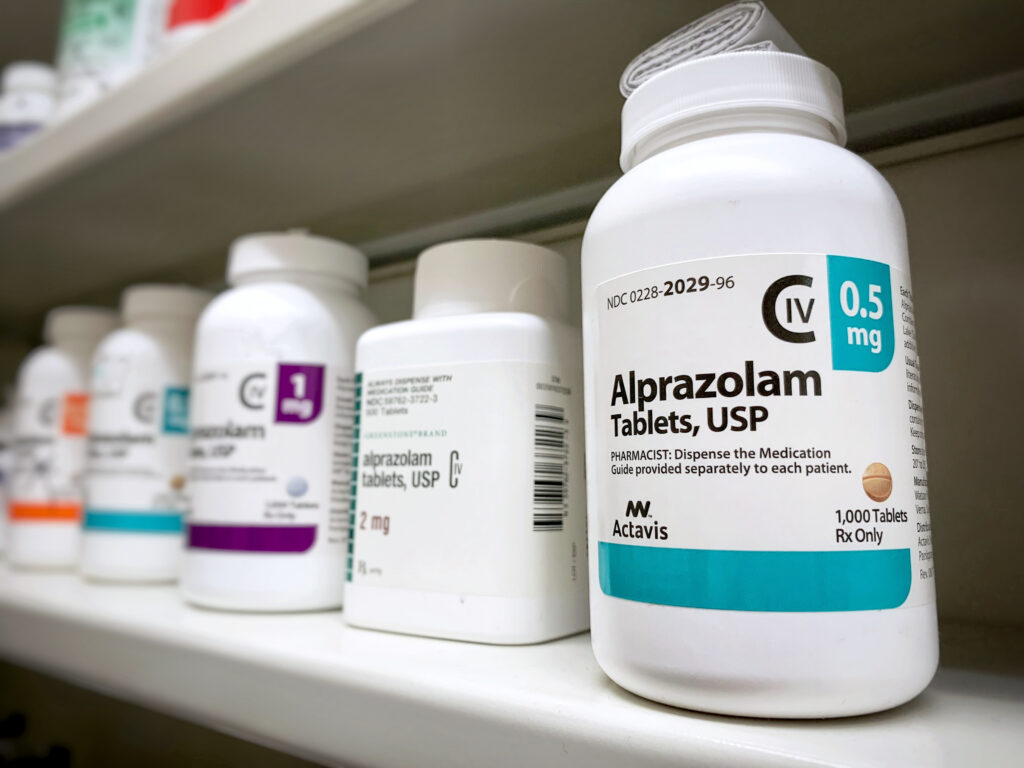New research builds on a landmark USC Schaeffer Center study aimed at reducing opioid overprescribing.
A new USC study finds that a courtesy letter informing physicians when a patient dies of an overdose may provide the needed “nudge” to improve prescribing practices.
Benzodiazepines, colloquially called “benzos,” are commonly prescribed for conditions from anxiety to sleep disorders, but their effects can be fatal when combined with opioids, alcohol or other prescription drugs. In 2020 alone, some 12,290 Americans died from overdoses involving benzodiazepines and opioids, according to federal statistics.
“We know that benzodiazepine-related deaths are on the rise,” said lead author Jason Doctor, co-director of the Behavioral Sciences Program at USC Schaeffer Center and the Norman Topping Chair in Medicine and Public Policy at the Price School of Public Policy. “But these deaths are hard to prevent on an individual basis. Providers want to help, and they are inclined to assume their own patients will not be part of the national trend.”
Sign up for Schaeffer Center news
To test a potential intervention, Doctor and colleagues revisited earlier research in which physicians received notifying letters from a county medical examiner whenever a patient to whom they had prescribed opioids suffered a fatal overdose. That “nudge” resulted in a nearly 10% decrease in opioid prescriptions.
‘Nudge’ has a positive spillover effect
New analysis of that study shows that the nudge also caused a reduction in the most frequently prescribed benzodiazepines—alprazolam, which is marketed under the brand name Xanax, and lorazepam, which is often sold as Ativan. The daily use of 2-mg doses of these drugs declined by 3.7% among notified physicians compared to the control group.
The findings appear today as a research letter in JAMA Internal Medicine.
“We wanted to evaluate if clinicians are more careful in general—including with prescribing other potentially dangerous drugs such as benzos—or if they just reduce the use of opioids,” said Doctor. “We find that the letter had a spillover effect extending beyond the opioid class of drugs targeted.”
The researchers believe the nudge made prescribers more aware of the dangers of different drugs— and they responded accordingly.
The researchers write, “The results of this secondary analysis suggest that having medical examiners send out letters informing clinicians of a fatal scheduled drug overdose in their practice is a low-cost approach to curtailing the overprescribing of benzodiazepines.”
Striking the right tone is essential
The tone of such letters, however, is vital to the intervention’s success, according to Doctor: “It must be respectful, clinical and informative so as not to cause providers to become defensive. Physicians tend to appreciate information as long as it is sent respectfully and is clinically relevant to their practices.”
Officials nationwide have taken note of Doctor’s “nudge” and contacted him for advice on how to implement it. Agencies employing the strategy include the Los Angeles County Board of Supervisors, the Kentucky inspector general, Washington State Department of Health and the Baltimore City Health Commissioner. In addition, federal policymakers have reached out to Doctor to consult on the IMPROVE Act, which includes a provision mandating that prescribers be notified of both fatal and nonfatal overdoses among their patients.
“I’m on a mission to curb inappropriate prescribing through simple, inexpensive and novel tactics—grounded in scientific insights about human behavior—that have proven extremely effective in addressing public health problems,” Doctor said.
In addition to Doctor, other authors of the study are Michael Menchine, Marcella A. Kelley, Roneet Lev, Tara Knight and Emily Stewart of USC and Jonathan Lucas, the County of Los Angeles Medical Examiner-Coroner.




